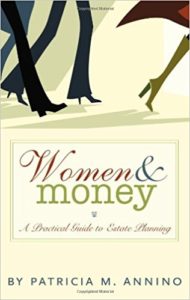 These money lessons for women in their fifties and sixties are from the financial experts at Women & Co (a website dedicated to finances for women). They also contributed Money Lessons for Women in Their 20s, 30s, and 40s, here on See Jane Soar.
These money lessons for women in their fifties and sixties are from the financial experts at Women & Co (a website dedicated to finances for women). They also contributed Money Lessons for Women in Their 20s, 30s, and 40s, here on See Jane Soar.
“Age is more than just a number when it comes to financial planning,” says Lisa Caputo and Linda Descano – the dynamic duo behind Women & Co. “Starting early can help give you a leg up on a comfortable retirement. This is particularly important for women because we live longer than men, are more likely to require long-term care services, and take more time out of the work force to care for children and family members. These financial realities make it even more important for us to start saving early, to save more as we earn more, and to plan carefully for those ‘time-out’ periods.”
These money lessons for women in their 50s and 60s are effective for women close to retirement – better late than never! For more financial info about retirement planning, click Women & Money: A Practical Guide to Estate Planning.
Money Lessons for Women in Their 50s and 60s
“Having a financial plan is an important step, but you need to review it regularly to make adjustments as life transitions occur,” say the financial experts at Women & Co. If you’re married or living with someone, you might find Dealing With Different Money Personalities as a Couple helpful.
Money Lessons for Women in Their 50s
Re-balance Your Portfolio. Review your investment portfolio regularly. Make adjustments to accommodate different cash-flow needs and changes in income and living expenses, as well as your changing vision of life after retirement.
Catch Up on Retirement Savings. At age 50, you become eligible to make “catch-up” or extra, contributions to your IRA and 401(k) plan, or similar retirement plan. This year, the 401(k) plan catch-up amount is $5,500 over the basic limit of $16,500, for a total contribution allowed to $22,000. For an IRA, you can make an extra $1,000 contribution for a maximum of $6,000 for the year.
Review Your Coverage. Regularly review your life and disability insurance coverage, which generally should replace enough of your income so that your family’s current and future needs are met. This includes everyday living expenses, short and long-term debts, education for your children, and retirement for your spouse/partner.
Money Lessons for Women in Their 60s
Look Into Social Security Benefits. At age 62, you’re eligible to start receiving Social Security. However, your benefits could be reduced by as much as 30% if you opt to get Social Security before your Normal Retirement Age (also known as Full Retirement Age, which ranges from age 65 to 67 depending on year of birth).
Get Back to Budgeting Basics. Learning to live on a fixed income requires different money management tactics than when you earned a salary with potential for increasing over time. A timeless money tip for women is to practice good basic budgeting by tracking your money and spending habits.
Update Your Estate Plans. Review your beneficiary designations on qualified plans, IRAs and life insurance policies. Talk to your financial, legal and tax advisors to make sure your estate plans are up-to-date.
If you’re experiencing a financial disaster, read Turning Failure to Successf for Female Entrepreneurs — it could help you rebound!
If you have any thoughts or questions on these money tips for women, please comment below…
Women & Co. is a financial resource program from Citi, dedicated to helping women achieve their financial goals.




